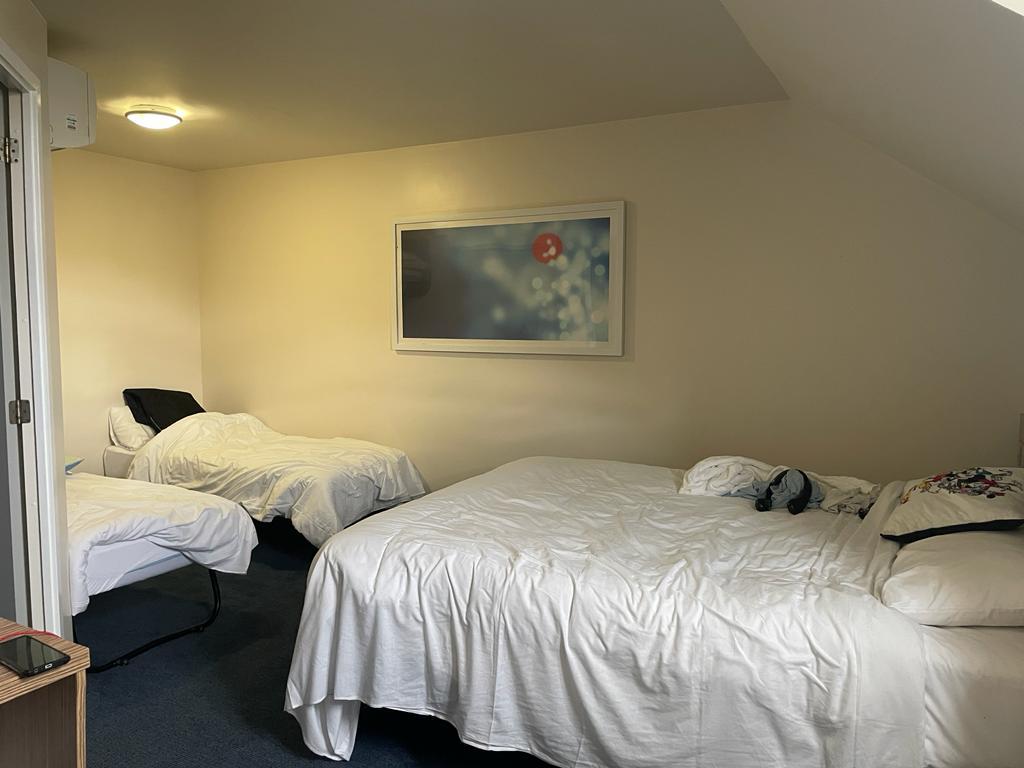
The Royal Borough of Greenwich has successfully reduced its use of hotel and Bed & Breakfasts (B&Bs) for households in temporary accommodation by a staggering 84% in only 18 months and reduced the pressure on the council’s finances by around £5.88m.
Additionally, the latest figures show that there are just 3 families currently in hotel temporary accommodation as of the 30 April.
Over the last few years the council, like many other local authorities in London, has seen increasing numbers of households struggling with the ongoing housing crisis. In Royal Greenwich, there are 2,000 homeless households in temporary accommodation, another 26,000 on our housing register - and only 1,000 of them will be re-housed each year.
Increasingly the only option for councils dealing with homeless households - many of whom are families - has been relying on hotels or B&Bs. This is the least desirable form of temporary accommodation as living in a hotel can be extremely difficult.
Families can be placed outside of the borough if rooms are not available locally, with no cooking facilities, little space and because bookings are not possible for longer than 28 nights, there is no feeling of security. Coupled with that, any sudden surge in eligible homeless households can result in unpredictable, financial costs for the council that can soon spiral.
Cllr Anthony Okereke, Leader of The Royal Borough of Greenwich, said: “We’re leading the way in London at reducing the numbers of families in hotels or B&Bs and have been able to use a holistic approach that harnesses our collective expertise to come up with effective and efficient solutions that will have a lasting impact on people’s lives.
“Our Housing Our Greenwich ambition is to ensure people have access to homes that are safe and secure, and we are using every lever available to us to tackle the housing crisis head on. This includes building and acquiring more new council homes and providing incentive schemes to better match people to privately rented homes that are suitable for their needs.”
Cllr Pat Slattery, Cabinet Member for Housing Management, Neighbourhoods and Homelessness said: “Living in a hotel room can have a real impact on families’ well-being during an already vulnerable time in their lives. It is also very expensive for the Council. At our peak in 2023, we were one of the local authorities in London with the highest reliance on this type of accommodation and I am so proud that this innovative new joint working has allowed us, in a short space of time, to drive down our use of hotels to virtually nothing (it may never be zero as in some instances there is not another option).
“Our success means that families are in much better accommodation, and we’re saving millions on what should only be reserved for absolute emergencies. The housing crisis hasn’t ended, but we’ve made great strides in this area - and we’ll continue to work to end other forms of temporary accommodation that aren’t suitable for families, by April next year.”
In Royal Greenwich, in just 12 months the number of hotel rooms needed for temporary accommodation increased from around 5 rooms a night in September 2022 to 269 rooms in September 2023 – resulting in costs of around £22,000 a night (average cost of £82 per night per room). In April last year, the council reached an unprecedented peak of 280 rooms a night.
To tackle this rapidly increasing crisis, an innovative collaboration was formed between the council’s Housing and Digital Services, who were able to harness the collective strength of over 40 experts from Regeneration, Finance and Welfare Services, to use data and innovation to identify solutions to rapidly drive down the council’s use of hotel and B&Bs and target resources towards early interventions.
One of the initial priorities was improving data to have access to real-time, trustworthy and relevant reports on key metrics, which identified the interventions which would help households out of hotels quickly (listed below), while limiting the impact on housing register applicants who were in significant housing need but not homeless.
Initial interventions included:
- dramatically speeding up the administration of homelessness assessments (prioritising families)
- using 50% of 133 newly acquired social homes (at Sandy Hill Road in Woolwich and Greenwich Millennium Village), along with a proportion of our existing homes as they became empty, to provide 100 direct offers for people spending the longest time in temporary accommodation
- using 100 more of the council’s own homes as in-borough temporary accommodation
- targeted support to help older people and our own council tenants living in temporary accommodation move into settled homes, and
- preventative use of incentives to help private sector tenants at risk of homelessness retain their tenancies.
Recent figures from March this year show that the number of households in hotels had dropped to 44 - or by 84% - and a drastic reduction in cost for the council from £29,500 at its peak in October 2023 to around £3,600 a night in March 2025.